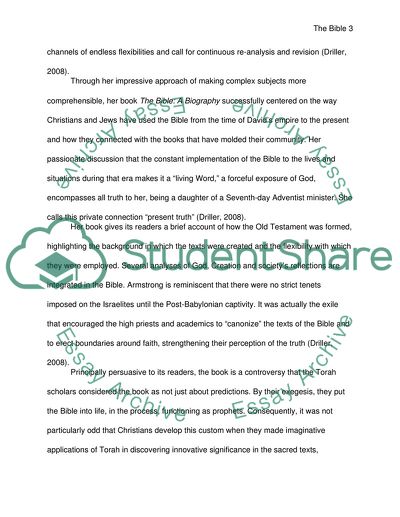Cite this document
(“The Bible: A Biography By Karen Armstrong Book Report/Review”, n.d.)
Retrieved from https://studentshare.org/religion-and-theology/1567713-book-report-on-the-book-the-bible-a-biography-witten-by-karen-armstrong
Retrieved from https://studentshare.org/religion-and-theology/1567713-book-report-on-the-book-the-bible-a-biography-witten-by-karen-armstrong
(The Bible: A Biography By Karen Armstrong Book Report/Review)
https://studentshare.org/religion-and-theology/1567713-book-report-on-the-book-the-bible-a-biography-witten-by-karen-armstrong.
https://studentshare.org/religion-and-theology/1567713-book-report-on-the-book-the-bible-a-biography-witten-by-karen-armstrong.
“The Bible: A Biography By Karen Armstrong Book Report/Review”, n.d. https://studentshare.org/religion-and-theology/1567713-book-report-on-the-book-the-bible-a-biography-witten-by-karen-armstrong.


